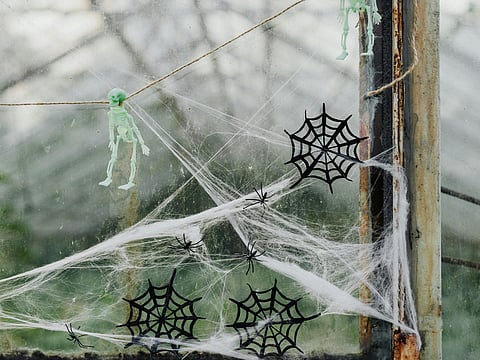
- LIFESTYLE
- FASHION
- FOOD
- ENTERTAINMENT
- EVENTS
- CULTURE
- VIDEOS
- WEB STORIES
- GALLERIES
- GADGETS
- CAR & BIKE
- SOCIETY
- TRAVEL
- NORTH EAST
- INDULGE CONNECT

Halloween, celebrated on October 31, has a rich history that intertwines ancient traditions, cultural evolution and modern festivities. Its origins can be traced back to the ancient Celtic festival of Samhain, a Gaelic festival marking the end of the harvest season and the onset of winter. The Celts, who lived in what is now Ireland, Scotland and parts of England, believed that on the night of Samhain, the boundary between the living and the dead was particularly thin. This was thought to be a time when spirits of the deceased could return to the earth, potentially causing havoc among the living.
To honour and appease these wandering spirits, the Celts would light large bonfires and wear costumes made from animal skins. They believed that these practices would help to ward off harmful spirits. As Christianity spread throughout the Celtic regions, many pagan traditions were absorbed into the new faith. By the 8th century, Pope Gregory III designated November 1 as All Saints' Day, a time to honour all saints and martyrs. The evening before became known as All Hallows' Eve, eventually morphing into "Halloween."
The modern celebration of Halloween began to take shape in the 19th century, particularly in the United States, as Irish and Scottish immigrants brought their traditions with them. The influx of these immigrants in the 1840s, particularly during the Irish Potato Famine, helped popularise Halloween. The practice of trick-or-treating emerged during this time, as children would go from door to door, performing small tricks or reciting verses in exchange for treats.
Pumpkin carving also became a popular tradition, influenced by the Irish practice of carving turnips. When they arrived in America, they found pumpkins to be more suitable for carving, leading to the iconic Jack-o'-lanterns we see today. Over the years, Halloween transformed into a community-centred holiday characterised by festive gatherings, haunted houses and themed parties.
Today, Halloween holds a significant cultural place in many countries, transcending its historical roots. It is a time for communities to come together, encouraging creativity and self-expression through costumes and decorations. It embraces themes of the spooky and supernatural while allowing for fun and lightheartedness. The holiday has evolved into a multifaceted celebration that highlights both its ancient origins and its modern adaptations, making it one of the most beloved and anticipated holidays of the year.